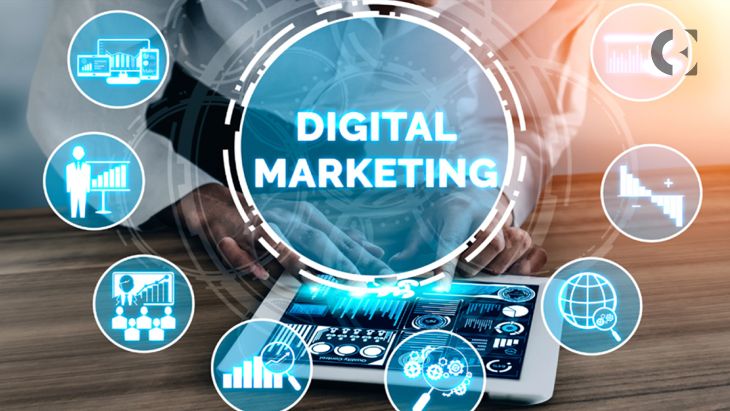It is no secret that over the past couple of years, the artificial intelligence (AI) sector has experienced remarkable growth, revolutionizing the way we look at various industries and their intrinsic processes. AI’s impact has been far-reaching, spanning sectors from healthcare to finance, and now, it’s making waves within the realm of digital marketing.
From a numerical standpoint, the global AI sector was valued at $136.55 billion in 2022, and it is expected to grow exponentially in the upcoming years, backed, in large part, by mounting investments in AI-centric technologies, digital disruption and the pursuit of competitive advantage in this fast-growing global economy. To elaborate, experts believe that the sector will continue to expand at a CAGR of 42% till the end of the decade, reaching a cumulative valuation of $1.3 trillion by 2032.
Furthermore, AI and its associated offerings are expected to contribute $15.7 trillion to the global economy by the turn of the decade — more than the GDP of top five global superpowers, China and India, combined. Of this multi-trillion dollar figure, Forbes analysts believe that the greatest economic gains will be witnessed by China, which stands to receive a 26% rise in its GDP by 2030 thanks to AI, followed by North America (14.5% boost), totaling $10.7 trillion and accounting for almost 70% of the global economic impact.
Ushering in a New Era of Digital Marketing
As pointed out earlier, AI has the potential to completely revamp a wide array of industries, including the digital marketing sector. From data analysis and campaign optimization to content creation and personalization, the integration of this tech stands poised to revolutionize various aspects of digital marketing.
For instance, AI’s ability to process vast amounts of data can provide marketers with invaluable insights into consumer behavior, preferences, and market trends, enabling them to make data-driven decisions and craft highly targeted campaigns.
Add to that AI’s natural language processing and machine learning capabilities, which can automate and streamline various content creation processes, allowing marketers to generate personalized and engaging content at scale. This saves time and resources and enhances the overall customer experience by delivering relevant and tailored messages.
At the forefront of this revolution stands a platform called AdEX, which incorporates AI into several aspects of its campaign crafting process, aiming to enhance efficiency and optimize outcomes. By integrating deep learning (DL) algorithms into its operational framework, AdEx achieves precise targeting and intelligent budget allocation, ensuring that advertisers’ campaigns remain perfectly aligned with the evolving needs and preferences of their audience.
The platform also employs advanced clustering methods to analyze user data, including behavior patterns and device usage, dynamically refining audience segments for precise targeting. Furthermore, AdEx’s adaptive bidding strategy evaluates bidding opportunities in real time, ensuring optimal ad placement at the lowest possible cost while maximizing engagement and conversions.
Recognizing the detrimental impact of ad fraud on ad performance and the potential for significant financial losses, AdEx utilizes a DL module comprising of two key components: ad-serving anomaly detection and adaptive pattern recognition. The platform swiftly identifies anomalies such as click farms, bot traffic, and fake impressions through real-time analysis of user behavior, IP addresses, device characteristics, and other relevant factors.
Lastly, thanks to their training on extensive datasets of historical fraud patterns, the platform’s native AI models can rapidly identify new fraud patterns and thereby adjust its prevention strategies accordingly.
An Undeniable Symbiotic Relationship
With the adoption of AI and Web3 technologies continuing to grow, these domains are beginning to intersect more and more with one another, fostering a great deal of innovation in the process. Not only that, the integration also has the potential to create more personalized, transparent, and effective advertising experiences that can address some of the long-standing challenges in the digital advertising industry, such as ad fraud, data privacy concerns, and the concentration of power among a few major players.
With platforms like AdEx helming this revolution, it will be interesting to see how Web3 marketers continue to adopt AI to their advantage, especially since these seemingly disparate domains stand to help each other a lot—both financially and technologically. Interesting times ahead, for sure!
Disclaimer: The information presented in this article is for informational and educational purposes only. The article does not constitute financial advice or advice of any kind. Coin Edition is not responsible for any losses incurred as a result of the utilization of content, products, or services mentioned. Readers are advised to exercise caution before taking any action related to the company.







